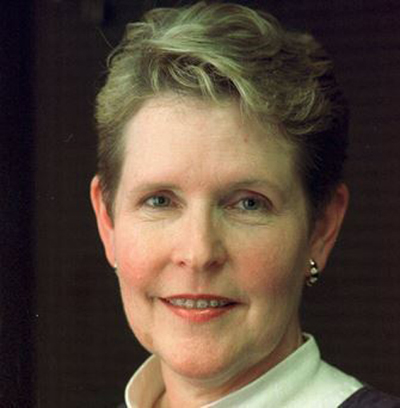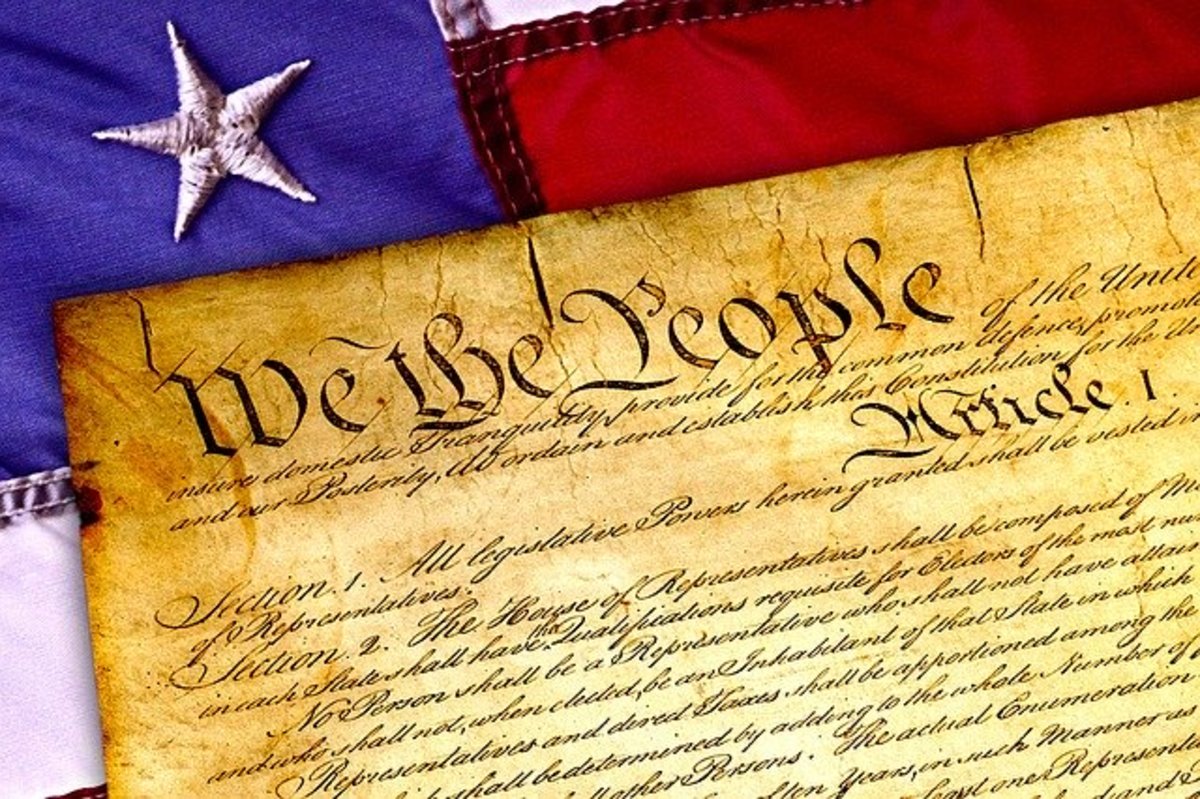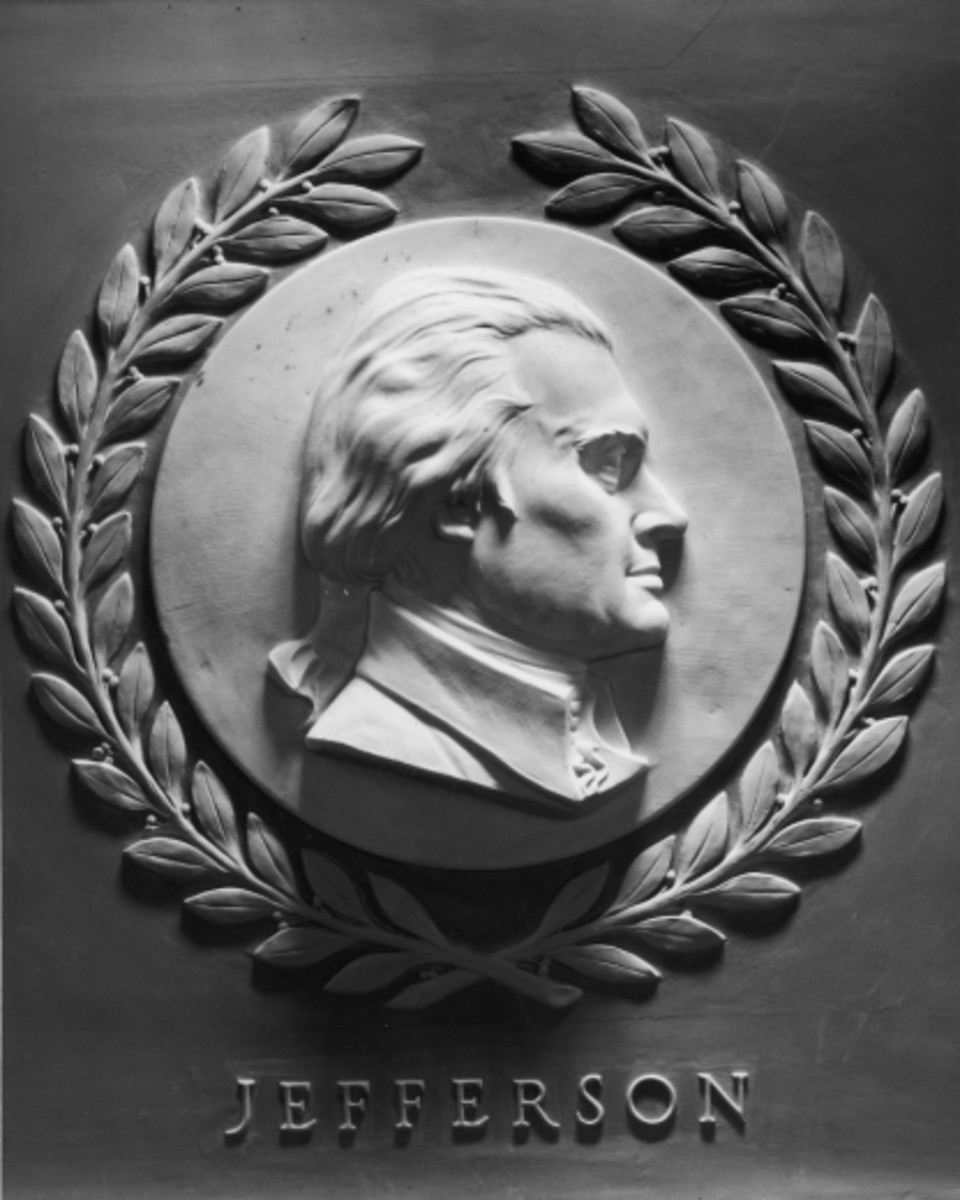Gay Marriage Reaches the Deep South (Alabama)
Same-sex marriage (gay marriage) reaches the Deep South
I left South Africa and immigrated to the United States back in 1986. When I arrived in this country, gay men and lesbians were treated with open hostility. This hostility was particularly egregious in terms of the manner in which gay men were treated; we were all assumed by heterosexual Americans to be infected with HIV or otherwise diseased. My first manager, who was (and who remains) very religious, opined that homosexuality was "Satanic," which of course kept me from coming out at work. It was not until I had been in the country for about four years that I became active in the movement for gay equality. Several years ago, I came out to the manager in question, and was pleasantly surprised by his reaction -- he was completely accepting, and merely regretted that I had felt myself unable to tell him sooner. This is personal proof to the effect that coming out of the closet can be transformative and powerful.
During the almost 30 years that I have lived in this country, I have seen the gay and lesbian community make strides which, had I thought about them seriously back in 1986, would have been unimaginable. We have negotiated our way into broader society, with considerable help from the Supreme Court of the United States (SCOTUS). Ironically, just three months before my arrival in the country, SCOTUS had handed down a decision which would later be viewed by jurists and constitutional scholars as one of the contemporary Court's most embarrassing and humiliating failures.
In Bowers v. Hardwick, 478 U.S. 186 (1986), SCOTUS held that the right to privacy protected by the Due Process Clause of the Fourteenth Amendment did not extend to protect the right of gay men and lesbians to engage in what the Court crudely referred to as "homosexual sodomy." This case involved a challenge to the Georgia sodomy statute after a man named Michael Hardwick was arrested (but ultimately not prosecuted) after a houseguest mistakenly permitted the police to enter Hardwick's home. The police entered Hardwick's bedroom and found him engaging in oral sex with another man. Hardwick was arrested, but the District Attorney declined to prosecute. Hardwick, however, was enraged by the fact that the criminal justice system permitted the state of Georgia to infringe on his privacy rights to such a degree, and he filed suit against the state of Georgia, seeking a declaration that the Georgia sodomy statute was unconstitutional. The US District Court dismissed the case under Rule 12(b)(6) (failure to state a claim for which relief may be granted), but the US Court of Appeals for the Eleventh Circuit reinstated the lawsuit, holding that the statute in question violated a "fundamental" right to privacy, and that the law should be examined by the trial court under the "strict scrutiny" standard of judicial review.
Strict scrutiny is a standard of judicial review which is extremely difficult for the state to surmount. Under strict scrutiny, the burden falls squarely onto the shoulders of the state to prove that the statute, ordinance, executive policy, or other measure in question promotes a "compelling" governmental interest, and is "narrowly tailored" so as to promote that interest in the "least restrictive" manner possible, insofar as the right in question is abridged. This standard is usually reserved for statutes which classify on the basis of race, national origin, or ethnicity. It is also employed when the right which is abridged is considered by the reviewing court to be "fundamental" in nature. That was the case with respect to the opinion of the Eleventh Circuit Court of Appeals.
SCOTUS issued certiorari and reversed the decision handed down by the Eleventh Circuit Court of Appeals by a 5 to 4 vote. The majority opinion focused obsessively on application of this statute to homosexuals, and expressly declared that the statute was not unconstitutional as applied to heterosexual couples acting in private. Justice Harry Blackmun penned a vehement and passionate dissent in which he accused the Court of an "almost obsessive focus on homosexual activity" and an "overall refusal to consider the broad principles that have informed our treatment of privacy in specific cases." This case soon came under fire from both liberal and conservative organizations and jurists. The Court was indeed obsessed with homosexuality, which had unfortunately been made prominent in news accounts due to the AIDS epidemic which was spreading throughout the gay male community.
The punishment prescribed for acts of "homosexual sodomy" in the state of Georgia provided for the imprisonment of persons found guilty of violating this statute for up to 20 years. This made it the harshest sodomy statute in the country. SCOTUS noted that Hardwick would have had an Eighth Amendment ("cruel and unusual punishment") claim against the state of Georgia had he been imprisoned for any length of time.
Bowers was widely attacked, and even ridiculed, by other judges within both the federal and the state courts. However, it remained good law until it was finally reversed by Lawrence v. Texas, 539 U.S. 558 (2003). Lawrence is discussed in more detail below.
Recently, Chief Judge Roy Moore of the Alabama Supreme Court instructed probate judges across the state to refuse to issue marriage licenses to same-sex couples, notwithstanding the fact that US District Judge Callie V. Granade (a George W. Bush appointee) had issued an opinion holding that the state of Alabama's statutory and constitutional provisions prohibiting same-sex marriage violated both the Due Process Clause and the Equal Protection Clause of the Fourteenth Amendment. On Monday, February 3, only 20 of Alabama's 67 counties started to issue marriage licenses to gay couples. This was hailed by anti-gay hate groups such as the "Family Research Council" (FRC) as proof that the people of Alabama would resist same-sex marriage to the bitter end. However, by Friday, February 7, a total of at least 47 counties were issuing marriage licenses to gay couples.
Liberty Council is a 501(c)(3) non-profit law firm and ministry which provides free legal assistance in defense of "Christian religious liberty, the sanctity of human life, and the traditional family." Recently, this organization has been dedicated to hindering the progress which gay men and lesbians have made with respect to the issue of same-sex marriage nationwide. This firm has defended providers and places of public accommodations which have refused to do business with gay men and lesbians, on the grounds that to do so would be to violate deeply held religious beliefs. Under the guise of defending personal religious liberty, this firm has misrepresented providers of public accommodations, who are bound by anti-discrimination statutes and other such measures,
It should be noted that anti-discrimination statutes, ordinances, and other such measures have been deemed constitutional by SCOTUS under a Commerce Clause analysis. When a person or corporation enters the public domain and makes goods and services available to members of the public, that person or corporation loses certain rights which an individual who is not marketing a service or product for the public would continue to possess.
What Liberty Council does not seem to understand is that the Constitution of the United States is the highest law of the land. The constitution of the state of Alabama may indeed be the highest law of the state of Alabama, but state constitutions may not detract from the rights which persons living in those states enjoy under the US Constitution, and the Alabama state constitution is eclipsed by the US Constitution. This is black-letter law, and has been the case for literally centuries. State constitutions may be more generous, either by their terms or as construed by state supreme courts, than the US Supreme Court, but they may not detract from rights guaranteed all citizens by the US Constitution.
Should a state constitution detract from the rights that any segment of that state enjoys under the US Constitution, it is the state constitution which must yield, not the US Constitution. A federal judge has interpreted the US Constitution following the handing down of United States v. Windsor, 570 U.S. ___ (2013), and has reached the same conclusion as that reached by roughly 40 other federal judges at both the District Court and appellate court levels -- which is that the US Constitution's guarantees of equal protection and due process mandate that the states recognize gay marriages on the same terms as heterosexual marriages. These guarantees have been recognized in an almost unbroken stream of federal authority, and the Supreme Court of the United States (SCOTUS) appears poised to strike down all state statutes and constitutional amendments which prohibit the recognition of gay marriage.
Conservative Justices Antonin Scalia and Clarence Thomas have signaled, in their dissent pertaining to the refusal of SCOTUS to issue a stay of Judge Callie V. Granade's ruling (legalizing gay marriage in Alabama), that the Court has already decided this issue. This conclusion follows inescapably from the fact that the Court has consistently refused to issue stays of rulings handed down by the US Courts of Appeals and the US District Courts in those cases in which these courts have ruled in favor of gay marriage.
Furthermore, the Court has taken up the Sixth Circuit case of DeBoer v. Snyder, #14-1341 (2014) (consolidating this case with the other cases from the other three states falling under the Sixth Circuit's jurisdiction) -- this is the only case in which a Circuit Court of Appeals has held that anti-gay marriage measures are constitutional (the Second, Fourth, Seventh, Ninth, and Tenth Circuits have all ruled that state prohibitions against gay marriage DO violate the Equal Protection Clause (and in some cases, the Due Process Clause) of the Fourteenth Amendment).
SCOTUS really had very little choice other than to grant certiorari in the Sixth Circuit cases, because the two-judge majority opinion blatantly misrepresented US Supreme Court precedent and the continued precedential value of an old decision in which the Court addressed the issue of gay marriage and dismissed the case "for want of a substantial federal question" (Baker v. Nelson, 409 U.S 810 (1972)). Such summary dismissals are binding on the lower courts, but have considerably less precedential value than cases in which the Court has been briefed and oral arguments have been entertained on the merits. In Hicks v. Miranda, 422 U.S. 332 (1975), SCOTUS reaffirmed the precedential nature of such summary dismissals, holding, however, that such dismissals lose their precedential force when "doctrinal developments indicate otherwise."
In the field of gay rights, there have been seismic "doctrinal developments" which have undermined Baker. Back in 1972, almost all of the states had anti-gay sodomy statutes on their books -- although these statutes were seldom enforced directly, they did grant the police broad powers to raid gay bars and to arrest patrons. The concept of "quasi-strict scrutiny" (the standard of review employed in cases in which state actions which discriminate on the basis of gender are examined) had not even been introduced into the Court's lexicon, granting far fewer protections to women than is currently the case.
State-sponsored discrimination against gay men and lesbians was only held to be unconstitutional by the Court in 1996, when the Court invalidated a Colorado state constitutional amendment which rescinded all measures which protected gay persons from discrimination at the hands of heterosexual persons in the public sector, and which had the "ultimate effect" of singling out gay men and lesbians and preventing them from ever again being able to petition their state government, at all levels, for a redress of grievances (see Romer v. Evans, 517 U.S. 620 (1996)). The majority opinion was written by Justice Anthony Kennedy, who responded to the assertion that the state constitutional amendment (known as Amendment 2) merely prohibited the granting of "special rights" to gay men and lesbians with the following passage: "We find nothing special in the protections Amendment 2 withholds. These are protections taken for granted by most people either because they already have them or do not need them; these are protections against exclusion from an almost limitless number of transactions and endeavors that constitute ordinary civic life in a free society."
Then just seven years later, the Court handed down Lawrence v. Texas, 539 U.S. 558 (2003), in which decision the Court struck down all state sodomy statutes as applied to consensual gay sexual activity between adults in private settings, explicitly and apologetically reversing Bowers v. Hardwick. The vote was 6 to 3, with Justice Anthony Kennedy writing the opinion for the majority. The majority opinion acknowledged that the Court had framed the liberty interest in Bowers far too narrowly, stating that "[t]o say that the issue in Bowers was simply the right to engage in certain sexual conduct demeans the claim the individual put forward, just as it would demean a married couple were it said that marriage is just about the right to have sexual intercourse." The majority went on to note that "[a]lthough the laws involved in Bowers and here purport to do no more than prohibit a particular sexual act, their penalties and purposes have more far-reaching consequences, touching upon the most private human conduct, sexual behavior, and in the most private of places, the home. They seek to control a personal relationship that, whether or not entitled to formal recognition in the law, is within the liberty of persons to choose without being punished as criminals. The liberty protected by the Constitution allows homosexual persons the right to choose to enter upon relationships in the confines of their homes and their own private lives and still retain their dignity as free persons."
Justice Sandra Day O'Connor wrote a separate concurrence in which she opined that an equal protection analysis would have been more appropriate, noting that no democracy would tolerate such a restrictive and misguided statute for very long, were it evenhandedly enforced.
Finally, the Court handed down United States v. Windsor, 570 U.S. ___ (2013), striking down the heart of the misnamed "Defense of Marriage Act" (DOMA) under a broad equal protection rationale, thereby granting married gay couples roughly 1,138 federal rights, benefits, and privileges which they had been denied by Section 3 of DOMA, and which were routinely granted to married heterosexual couples (these rights include the right to collect Social Security Survivor's Benefits, exemption from federal estate taxes assessed against the transfer of an estate from a deceased spouse to a surviving spouse, federal employee spousal health benefits, the right of a married gay person to petition the United States Citizenship and Immigration Service for a visa for a same-sex spouse, the right of married gay couples to file joint federal income tax returns, and others too many to mention here). Once again, the opinion for the majority was written by Justice Anthony Kennedy.
Writing for the two-judge majority, Sixth Circuit Judge Jeffrey Sutton made the absurd assertion that only SCOTUS may overrule old summary dismissals such as Baker, despite the fact that SCOTUS made it abundantly clear in Hicks that the inferior federal courts have the right to do so when "doctrinal developments" indicate that such summary dismissals as Baker are simply no longer relevant to a changed constitutional landscape. For example, the US Court of Appeals for the Second Circuit, from which court SCOTUS issued certiorari for Windsor, made it abundantly clear that it no longer considered Baker to have any continued vitality. SCOTUS could easily have dismissed Windsor (or the companion gay marriage case, Perry v. Schwarzenegger, 704 F. Supp. 2d 921 (2010)) on the grounds that it failed to present a "substantial federal question" -- to the contrary, SCOTUS took these cases without even mentioning Baker. The Fourth, Seventh, Ninth, and Tenth Circuits all concluded that Baker was no longer good law, and at no time did SCOTUS step in to hand down a stay.
Judge Sutton, having (incorrectly) reached the threshold issue as to whether or not the three-judge panel of the Sixth Circuit Court of Appeals had jurisdiction to entertain the case argued by the gay litigants, should have ended his analysis at this point, in accordance with the well-settled constitutional precept which encourages Article III judges not to engage in the writing of obiter dicta. Instead, he embarked on the writing of a political treatise in which he argued that the gay litigants should have tried to win the hearts and minds of the citizens of the four states under the jurisdiction of this Circuit.
This led Judge Martha Craig Daughtrey to issue a blistering dissent in which she opened with the accusation that "[t]he author of the majority opinion has drafted what would make an engrossing TED Talk or, possibly, an introductory lecture in Political Philosophy. But as an appellate court decision, it wholly fails to grapple with the relevant constitutional question in this appeal: whether a state’s constitutional prohibition of same-sex marriage violates equal protection under the Fourteenth Amendment. Instead, the majority sets up a false premise — that the question before us is “who should decide?” — and leads us through a largely irrelevant discourse on democracy and federalism. In point of fact, the real issue before us concerns what is at stake in these six cases for the individual plaintiffs and their children, and what should be done about it. Because I reject the majority’s resolution of these questions based on its invocation of vox populi and its reverence for “proceeding with caution” (otherwise known as the “wait and see” approach), I dissent."
Both SCOTUS and the above-referenced US Courts of Appeals have all rejected the continued vitality of Baker, either directly or by implication (Justices Antonin Scalia and Clarence Thomas both acknowledged that the issue of gay marriage does indeed constitute a weighty constitutional question in their dissent from the Court's refusal to stay the Alabama federal ruling).
Prior to the handing down of Windsor, 19 states had already legalized gay marriage through action of their state legislatures, or (in three cases) by direct referendum at the polls (in all three cases in which this option was available, gay marriage passed; the gay and lesbian community can therefore boast of winning 3 to 0 at the polls). Should the hard right attempt to ratify a US Constitutional Amendment prohibiting gay marriage, we will require only 13 states to prevent such an Amendment from passing. As Justice Ginsburg recently commented during an interview with Bloomberg reporters, the adjustment for American society from a society which does not recognize gay marriage to a society which does recognize gay marriage should be relatively easy. Gay persons are our neighbors, our children, our parents, our relatives, our friends, our colleagues, and other persons known to us and (frequently) loved by us.
Recent opinion polls have found that the issue of gay marriage now enjoys record support, with an ABC News / Washington Post poll puts such support at 56%. The recent CBS News / New York Times poll placed support for gay marriage at the same level of 56%. A McClatchy-Marist poll placed support for gay marriage at 54%. A Gallup poll placed such support at 55%. A Greenburg Quinlan Rosner Research poll tops out with support for marriage hitting a record high of 60%. This stands in marked contrast to the status quo when SCOTUS handed down Loving v. Virginia, 388 U.S. 1 (1967), in which decision the Court struck down anti-miscegenation statutes nationwide; at that time, the overwhelming majority of Americans opposed mixed-race marriages. Also, there was "massive resistance" following the handing down of Brown v. Board of Education of Topeka, 347 U.S. 483 (1954), notwithstanding that we see, generations later, that this decision was absolutely correctly decided.
Alabama Supreme Court Chief Justice Roy Moore is giving extremely bad advice to the state's probate judges. This is a constitutional no-brainer. For Judge Moore to advocate violation of the federal court order is for this judge to violate his oath of office, in which he swore to uphold both the Alabama state constitution and the US Constitution. It is particularly egregious that he is willing to instruct probate judges not to issue marriage licenses -- this is a direct call to anarchy and official misconduct of the worst nature. These judges are all sworn to uphold the law, and at the present time, the law which holds precedence is US District Court Judge Granade's ruling in favor of gay marriage. Individual probate judges may not like this, but this is the state of the law in Alabama at the present time. Indeed, Judge Granade may have to modify her order to hold those probate judges who refuse to issue marriage licenses in contempt for their intransigence.
Let us hope that the rapidly diminishing number of probate judges who remain obdurate will soon recognize the futility of their refusal to issue marriage licenses to same-sex couples, and will recognize the authority of the federal district court.
PHILIP CHANDLER









